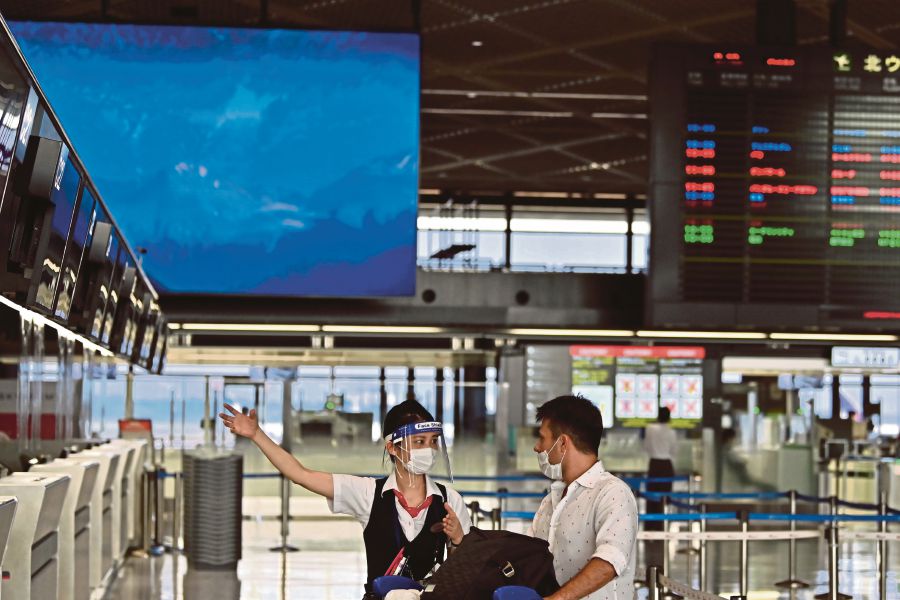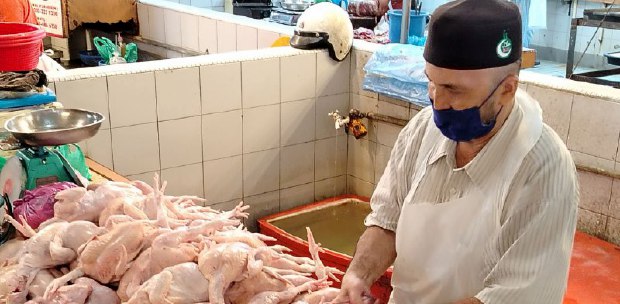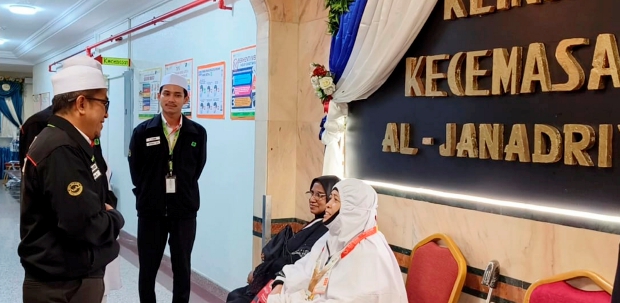FOR many of us, international travel is not possible for the time being. Despite the closed borders and the lockdowns around the world, people are still travelling.
Not many, admittedly, but enough to keep the airplanes up in the sky. Travelling is no longer a joy. All airlines now require passengers to wear a mask throughout the journey.
Some airlines—Qatar, for example — require passengers to wear a face shield, in addition to the mask, the whole time. Ever tried sleeping with a face shield? 'Uncomfortable' is putting it mildly.
Many travellers these days tend to be like me. Since the face shield and the mask can be put aside when eating or drinking, I am eating or drinking constantly.
But that defeats the purpose. Every time you take your mask off, you run the risk of catching the virus. If the US Centre for Disease Control says that a mask blocks up to 80 per cent of the respiratory droplets that carry the virus, then consider that when you take off your mask in the airplane. Your chances of not catching the virus is only 20 per cent.
A bit like Russian roulette except you can't see the gun. It used to be in the 1980s and 1990s that if you wanted to travel to Africa from Asia, you can g et there only via Europe. But with the popularity of Qatar Airways, Etihad, Turkish Airlines and Emirates, travel became so much easier. Using the Middle East as a hub, you could travel onwards to any other point in Africa.
I never realised how convenient this was, often lamenting my seven hours (or more) transit time in Doha, or Dubai. It was only when the pandemic hit that travellers to Africa found themselves with very few options. In July 2020, I had to make the journey from KL to Dakar. Normally the route would be KL to Dubai, with a seven-hour transit, then onwards to Dakar.
But this time, not only was it a challenge to find flights, it was a massive headache to find the appropriate connecting flights. First of all, it was only possible to get to West Africa via Europe, a throwback to 1980s travel. One of the reasons is West Africa is still highly dependent on colonial masters in Europe.
Thus, for the French-speaking countries of West Africa, the only air route in was either through Brussels or Paris.
Then there were also the Lusophone countries (Portuguese-speaking) which meant that Lisbon was also a viable route into West Africa. Next, the route out of KL. The more frequent flights were those of the Gulf countries—either Emirates or Qatar Airways.
After nearly three full days of trying every single route, I was finally able to find an appropriate route. Thus, it was KL to Doha, and then onwards to Berlin, and a short flight to Lisbon before the long-haul to Conakry and then Dakar. It wasn't really all that bad.
For one, after a lot of cajoling, the airlines were able to check my baggage through. (The Covid-19 scare helped here.) And I only had to spend a few hours in each hub, which was a good thing since many onboard services were suspended and food and drinks also became scarce. At times like these we realise why hubs are important.
In the US, travel hubs are normal. At the international level, international travellers know that there will always be a flight out of either Dubai, Abu Dhabi, or Doha. It was in this position that Changi wanted to put itself, and which KLIA has the potential to be.
One major requirement to be a travel hub is that the airport must offer all the facilities needed for the weary traveller — an airport hotel, food and beverage outlets, and chairs enough to just lounge in. Throw in a high-end spa, a few massage places, shops to amble around in, and voila! There will be people spending money while awaiting their next flight.
And during a time of closed borders, rerouted travel, and cancelled flights, these hubs make it possible for the handful of people who are obligated to travel. Will travel ever go back to normal? Perhaps never.
20 years after 9/11, we were still unbuckling belts and carrying liquids in small containers. With a global pandemic, it might be quite a while before we will be able to travel without a mask or show a negative swab test result.
The writer is a foreign service officer, who writes on international affairs with particular emphasis on Africa






